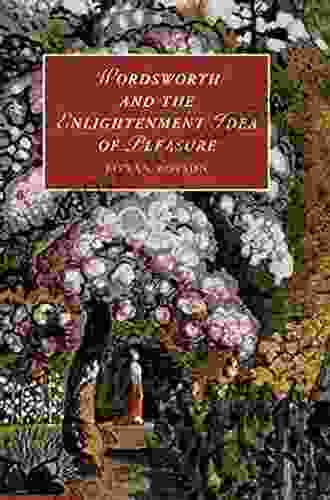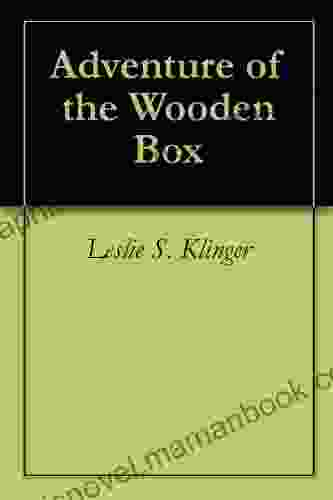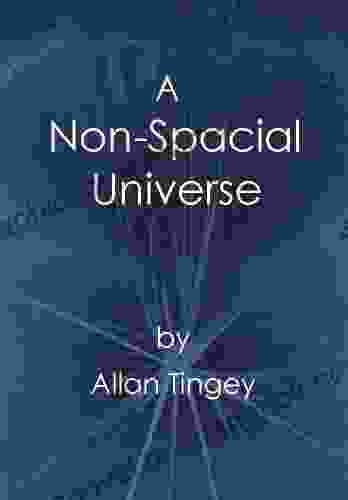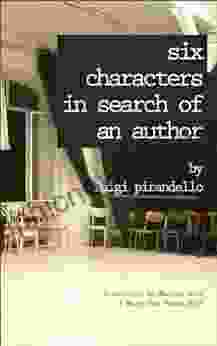Wordsworth and the Enlightenment Idea of Pleasure: Cambridge Studies in Romanticism

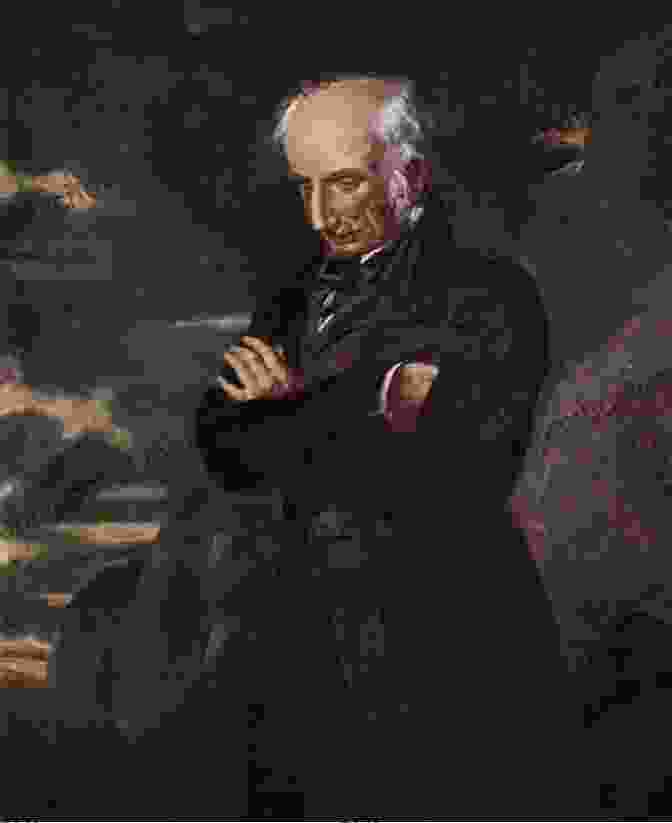
Abstract
This article explores the relationship between William Wordsworth and the Enlightenment idea of pleasure. Wordsworth was a Romantic poet who was deeply influenced by the Enlightenment, and his work often reflects the Enlightenment's emphasis on reason, nature, and individual experience. However, Wordsworth also critiqued some of the Enlightenment's ideas, particularly its focus on pleasure as the highest good. In this article, I argue that Wordsworth's poetry offers a complex and nuanced understanding of pleasure, one that is both indebted to and critical of the Enlightenment tradition.
5 out of 5
| Language | : | English |
| File size | : | 1097 KB |
| Text-to-Speech | : | Enabled |
| Screen Reader | : | Supported |
| Enhanced typesetting | : | Enabled |
| Word Wise | : | Enabled |
| Print length | : | 257 pages |
The Enlightenment was a philosophical movement that flourished in Europe in the 18th century. The Enlightenment thinkers believed that reason and science could be used to improve the human condition. They also believed that pleasure was the highest good, and that individuals should strive to maximize their pleasure.
William Wordsworth was a Romantic poet who was born in 1770. He was deeply influenced by the Enlightenment, and his work often reflects the Enlightenment's emphasis on reason, nature, and individual experience. However, Wordsworth also critiqued some of the Enlightenment's ideas, particularly its focus on pleasure as the highest good.
In this article, I will explore the relationship between Wordsworth and the Enlightenment idea of pleasure. I will first discuss the Enlightenment's view of pleasure. I will then discuss Wordsworth's poetry, and how it reflects both the Enlightenment's influence and Wordsworth's own critique of the Enlightenment.
The Enlightenment's View of Pleasure
The Enlightenment thinkers believed that pleasure was the highest good. They argued that individuals should strive to maximize their pleasure, and that the best way to do this was to use reason and science to improve the human condition.
The Enlightenment thinkers also believed that pleasure was a natural right. They argued that all individuals had the right to pursue their own happiness, and that no one should be prevented from ng so.
The Enlightenment's view of pleasure was based on the philosophy of utilitarianism. Utilitarianism is a moral theory that states that the best action is the one that produces the greatest happiness for the greatest number of people. The Enlightenment thinkers believed that maximizing pleasure was the best way to achieve this goal.
Wordsworth's Poetry
Wordsworth's poetry is often characterized by its focus on nature, individual experience, and the imagination. Wordsworth believed that nature was a source of beauty and inspiration, and that individuals could find happiness by communing with nature. He also believed that the imagination was a powerful force that could help individuals to transcend the limitations of their everyday lives.
Wordsworth's poetry is also marked by its use of simple language and everyday speech. Wordsworth believed that poetry should be accessible to everyone, and that it should not be confined to the elite.
In his poetry, Wordsworth often explores the relationship between pleasure and nature. He argues that true pleasure can only be found in nature, and that the pursuit of pleasure for its own sake is ultimately unsatisfying.
Wordsworth also critiques the Enlightenment's focus on reason and science. He argues that reason and science can only provide us with a limited understanding of the world, and that we must also rely on our emotions and our imagination.
Wordsworth's poetry offers a complex and nuanced understanding of pleasure. He is indebted to the Enlightenment tradition, but he also critiques some of its ideas. Wordsworth's poetry suggests that true pleasure can only be found in nature and in the human heart.
5 out of 5
| Language | : | English |
| File size | : | 1097 KB |
| Text-to-Speech | : | Enabled |
| Screen Reader | : | Supported |
| Enhanced typesetting | : | Enabled |
| Word Wise | : | Enabled |
| Print length | : | 257 pages |
Do you want to contribute by writing guest posts on this blog?
Please contact us and send us a resume of previous articles that you have written.
 Top Book
Top Book Novel
Novel Fiction
Fiction Nonfiction
Nonfiction Literature
Literature Paperback
Paperback Hardcover
Hardcover E-book
E-book Audiobook
Audiobook Bestseller
Bestseller Classic
Classic Mystery
Mystery Thriller
Thriller Romance
Romance Fantasy
Fantasy Science Fiction
Science Fiction Biography
Biography Memoir
Memoir Autobiography
Autobiography Poetry
Poetry Drama
Drama Historical Fiction
Historical Fiction Self-help
Self-help Young Adult
Young Adult Childrens Books
Childrens Books Graphic Novel
Graphic Novel Anthology
Anthology Series
Series Encyclopedia
Encyclopedia Reference
Reference Guidebook
Guidebook Textbook
Textbook Workbook
Workbook Journal
Journal Diary
Diary Manuscript
Manuscript Folio
Folio Pulp Fiction
Pulp Fiction Short Stories
Short Stories Fairy Tales
Fairy Tales Fables
Fables Mythology
Mythology Philosophy
Philosophy Religion
Religion Spirituality
Spirituality Essays
Essays Critique
Critique Commentary
Commentary Glossary
Glossary Bibliography
Bibliography Index
Index Table of Contents
Table of Contents Preface
Preface Introduction
Introduction Foreword
Foreword Afterword
Afterword Appendices
Appendices Annotations
Annotations Footnotes
Footnotes Epilogue
Epilogue Prologue
Prologue Bernard Knight
Bernard Knight Nigel Hollis
Nigel Hollis Peter Conradi
Peter Conradi Nobuhiro Watsuki
Nobuhiro Watsuki Paul Taylor
Paul Taylor Pam Walker
Pam Walker Craig Walls
Craig Walls Stephen Kinzer
Stephen Kinzer Joel Austin
Joel Austin Quentin Skinner
Quentin Skinner Margaret Vaughn
Margaret Vaughn Michael B Berkman
Michael B Berkman Kieron Gillen
Kieron Gillen Amy Howard
Amy Howard Jessica Johnson
Jessica Johnson Page Keeley
Page Keeley Benn Steil
Benn Steil Kathy Hoopmann
Kathy Hoopmann Philip Richardson
Philip Richardson Frank Mclynn
Frank Mclynn
Light bulbAdvertise smarter! Our strategic ad space ensures maximum exposure. Reserve your spot today!

 Samuel Taylor ColeridgeThe Fundamental Guide On American Bully Dog And Puppy Costs Care Feeding...
Samuel Taylor ColeridgeThe Fundamental Guide On American Bully Dog And Puppy Costs Care Feeding... Jules VerneFollow ·7.3k
Jules VerneFollow ·7.3k Dallas TurnerFollow ·17k
Dallas TurnerFollow ·17k Milan KunderaFollow ·6.2k
Milan KunderaFollow ·6.2k Chance FosterFollow ·16.6k
Chance FosterFollow ·16.6k Alexandre DumasFollow ·7k
Alexandre DumasFollow ·7k Jessie CoxFollow ·16.3k
Jessie CoxFollow ·16.3k Roger TurnerFollow ·11.3k
Roger TurnerFollow ·11.3k Gus HayesFollow ·11.1k
Gus HayesFollow ·11.1k
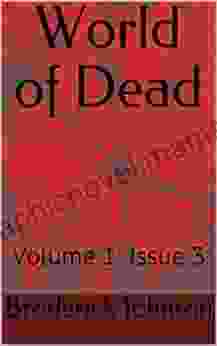
 Rex Hayes
Rex HayesWorld of Dead Volume Issue: An In-Depth Analysis
The World of Dead volume issue...

 Nathan Reed
Nathan ReedHard Lessons Learned from ERP Rollouts: A Hivemind...
Enterprise...

 Fernando Bell
Fernando BellWith the Light, Vol. 1: Illuminating the Extraordinary...
The advent of parenthood is a...

 Wesley Reed
Wesley ReedNo Helping Hand: True Story of Deadly Waves
In December 2004,...
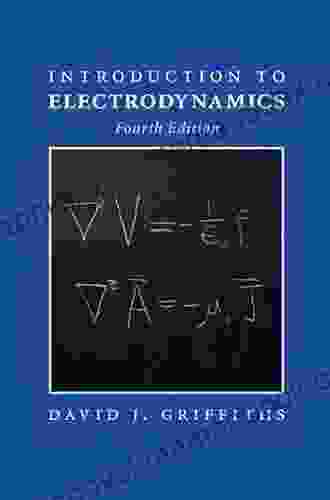
 Ruben Cox
Ruben CoxIntroduction to Electrodynamics by David Griffiths: A...
to Electrodynamics by...
5 out of 5
| Language | : | English |
| File size | : | 1097 KB |
| Text-to-Speech | : | Enabled |
| Screen Reader | : | Supported |
| Enhanced typesetting | : | Enabled |
| Word Wise | : | Enabled |
| Print length | : | 257 pages |


